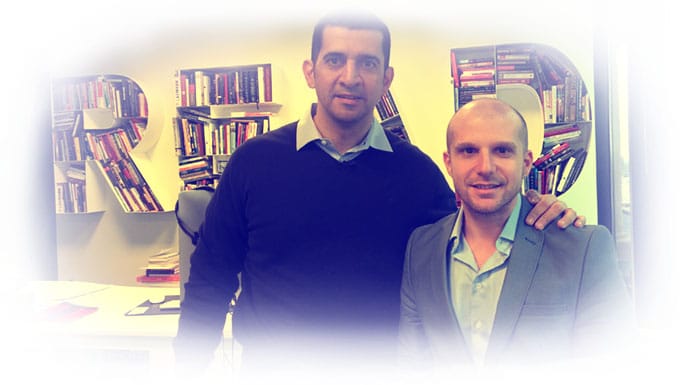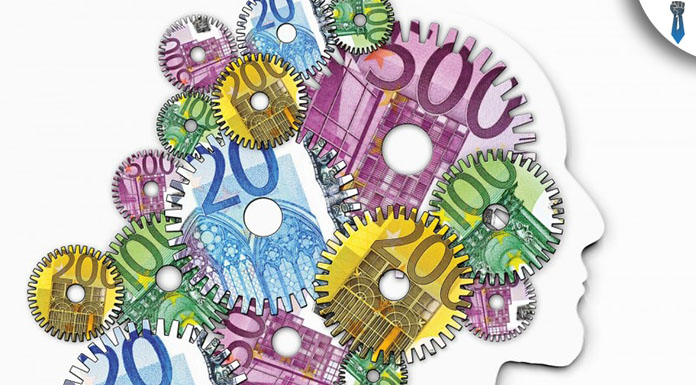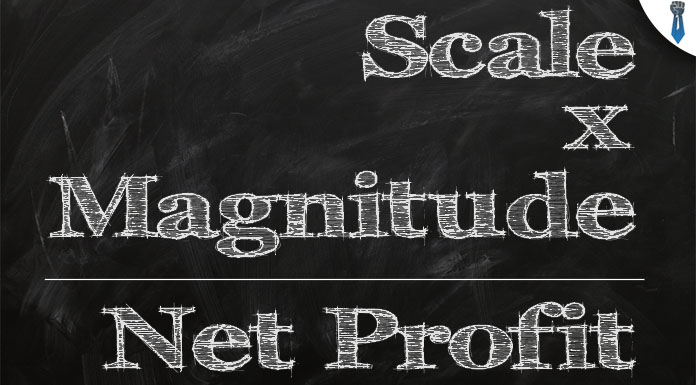I literally just got back from my trip to Dallas, Texas. Like a few hours before at the time of this writing.
The whole mentoring session with Patrick Bet-David (will explain more in a bit about it) and the trip as a whole was an enjoyable experience. I saw a lot, I learned a lot, and in today’s post, I’m going to share a lot of this experience with you.
Patrick is a knowledge powerhouse and a brilliant businessman. All the advice he gave to us was golden. I believe that if you apply even half of those you’ll read today, you’ll take your business to a whole new level.
First things first
Before I dive into the advice, let me tell you who Patrick Bet-David is and how did I end up having a business meeting with him – I know you’re here for the juicy stuff, but bear with me. This way you’ll maximize the value you’ll get out of it, I promise.
Patrick is the owner of PHP Agency, Inc. a US based insurance company valued at some hundred million dollars (not sure if I’m allowed to give you a more accurate number). He’s also the owner and host of Valuetainment, most probably the best channel about entrepreneurs on YouTube.
I learned about him about a year ago, when I first watched his video on YouTube called “The Life of an entrepreneur in 90 Seconds.”
Seriously, this is probably, the most moving video I’ve ever seen in my life. I watch it every Monday morning as part of my weekly routine. It gets me so fired up and so focused I can’t even describe it.
Take a look at it below.
After watching his video, I became a raving fan. Since then I’ve watched all his videos, and if you’re serious about entrepreneurship, I think you should watch them too.
Video after video, I got all the value (actionable information) and entertainment (emotion) I needed to move forward. Each video is a valuable lesson about entrepreneurship. I talk about golden stuff here guys. I’ve never been to a hardcore business school myself, bit I guess even if I had, and even if I had paid thousands of dollars, I wouldn’t have gotten so much value out of it.
About two months ago, and after their YouTube Channel had passed 100k subs, people in Valuetainment decided to make a super cool gift and take ten aspiring entrepreneurs for a private mentoring session with PBD himself.
All we had to do was making a video saying what we believed about Valuetainment. The ten best of us would fly to Dallas, TX, and would have a blast.
Taking part in this competition made total sense to me. So I allocated almost a single day, into taking my best shot at it.
I created a video as sincere as possible, with a light touch of humor and sent it over.
Here’s the video I sent for the 100k subs competition.
Although it was 5 minutes long, people there didn’t get stuck over technicalities. As you can imagine, this video won me a place in PBD’s mentoring program – I know it makes total sense after watching it right? :p
The mentoring session was scheduled for the 9th of December 2016, so I decided to be in Dallas, TX, a few days before that to acclimate myself before the actual meeting. We all know everything works smoother when we’re relaxed right?
Although I consider myself to be a relaxed guy in a good physical condition, taking a trip of about 10k kilometers is a stretch for the body and the mind. So the day before the meeting, I met with a good friend of mine from Texas, and together with my two buddies from Greece, we made an excellent tour in the city of Dallas – which is beautiful by the way, but more on that later.
The meeting took place in PHP’s headquarters, and after we had met at around 8 am, Mario Aguilar the Marketing manager (and a super cool guy by the way) together with his group, gave us a cool tour of the office. What surprised me the most, is that all people seemed so relaxed and happy to work there.
The environment doesn’t remind the typical corporate environment where everything’s strict and linear. Even the “cubicles” are somehow pieces of art, with different kinds of pictures, artworks, passion items, etc.
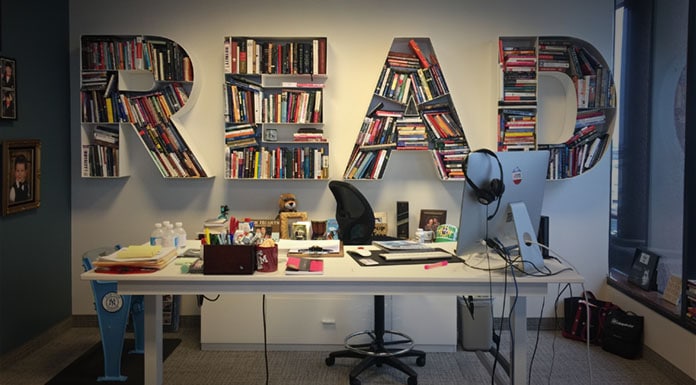
They even have a fully equipped beer and wine machine in there, so after a particular time, people can enjoy their drink and work in a happier mood. A lot happier mood. By the way, these were lessons for me as well. Although they didn’t come out of PBD’s mouth directly, watching how he’s managing his team in everyday life, is a huge lesson itself – most probably worth thousands of dollars if someone was to teach you (and me) this stuff.
We also had the chance to meet Tom Ellsworth, the president at PHP Agency, Inc. with tons of experience in business and a raving fan of Formula 1. All I can say is that he’s an incredibly rare guy. I feel so lucky I got to meet him.
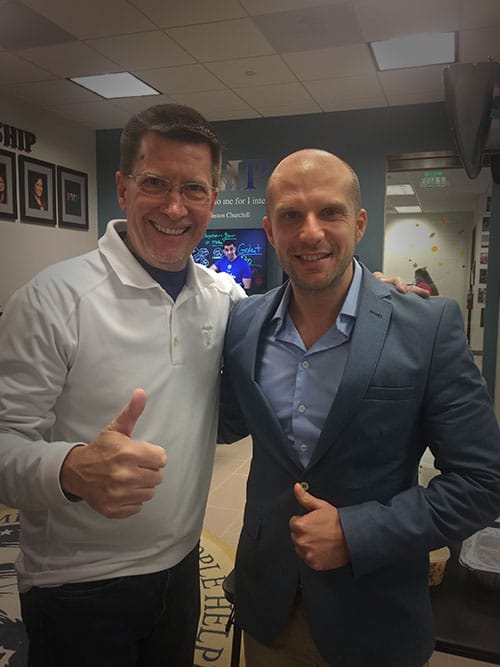
After the short but very inspiring interaction with Tom, it was time for the meeting.
We all made a brief introduction of our businesses and ourselves, and after that, Patrick started to give specific advice to each and every one of us.
What I learned from Patrick Bet-David
Okay people, the time you’ve been waiting for. I know you’re here mainly for that – why would anyone want to be here for my rants anyway…
Although Patrick gave a lot of specific advice to all the participants, nonetheless, I think it’s best to focus on the mindset part.
I’m a strong believer, that if someone has got a solid mindset, sooner or later he’ll figure things out. So according to me, it’s not that important to mention, each technical advice PBD gave to all of us because of two reasons:
- It might be irrelevant to your business.
- What I care about is the logic behind his thinking, not the final output. You see where I go with this? Let me give you an example. Let’s suppose that you got some problems with flat sales. In my opinion, what I would like to know from any mentor wouldn’t be what to do to increase my sales, because this only applies to a particular business under very specific conditions. What I would want to know is: “In what way do I need to think to increase my sales?” If you learn how to think correctly, you can apply the same basic principles to every occasion. Or in other words, long-term thinking vs. short-term thinking.
So if you ready, let’s do this.
Rule #1: Always have in mind your long-term vision
Patrick is adamant about it. Almost obsessed I’d dare to say. This was his opening line and his primary focus when giving advice to each one of us.
What’s your vision for your business he kept asking? Unless you got a long-term vision, your business would face many difficulties growing.
For example, his vision with Valuetainment is something like this: “Have the best channel for entrepreneurs on YouTube.”
Or maybe, “have the largest donut chain in Brazil.” That was actually the vision of another fella in our group. So before you start your company, always make sure you have a clearly defined vision.
It’s like always having a target to shoot at. You can’t achieve a bulls-eye unless you see the target, right?
Rule #2: Watch who’s giving you advice
Advice is welcomed, but it always depends on who’s giving you this information.
We had a very nice case of two young entrepreneurs there, making some fantastic pillow cases. At some point, they mentioned that as they were told, their products were sold at a lower price point than they should.
But who gave you this advice Patrick asked. He didn’t mean the information was wrong. What he meant is that, watch out who you take advice from. What’s the track record of your adviser? If they have a marketing company, ask about their results with other clients.
If someone tells you something about your business, always make a background check on them. This makes perfect sense right?
Would you trust me if I told you I could help you grow your business to a $100 million valuation? Probably you shouldn’t because I don’t know how to do it (yet). But what if someone like Patrick (or an equally accomplished entrepreneur) wanted to give you the same advice? Well, then, in this case, you should probably take it and apply it to the last detail.
Rule #3: Encourage everyone, praise performers
That I liked a lot. Patrick is a firm believer of capitalism (check my next rule), and so he believes that everyone in his company should be encouraged to perform his/her best, but only top performers are to be recognized.
This way, he hits two birds with one stone. He gives an extra motive to non-performers to try more, because they see that their colleagues are praised when they perform well, and secondly, he keeps top performers motivated and inspired to try even harder.
When every department is firing on all cylinders, the company can only go up and to the right.
Rule #4: Capitalism loves team effort and promotes gifted individuals
Oh man, don’t even let him get started on capitalism. The man is a serious fan of capitalism and so do I. In fact, a few weeks ago, I wrote a highly polarizing article about what capitalism really is and why I love it, again inspired by a Pat’s video. The article sparked many comments and debate over the social media, but I think I helped many people get a better understanding of what capitalism is, and why we need it.
Of course, his knowledge on capitalism is much vaster than mine, but I’ll try to sum his view up in a few lines here.
So his take on capitalism is that it’s the fairest economic system in existence. It’s fair because it is based on pure mathematics. Maths don’t lie you know. They are predictable. So like 2+2 always equal four, in the same sense in capitalism and in every free market, the individual or the company who offers the most value to the society will eventually win.
Unfortunately, governments nowadays regulate as many sectors as possible. Which according to Adam Smith in “The Wealth of Nations,” and Milton Friedman in “Free to Choose,” is catastrophic for all nations in many ways.
Patrick proposed to watch the video of Milton Friedman and Phil Donahue on YouTube if we wanted to get a better understanding on the matter. I looked at both videos, and I got to say, they’re golden.
I also started to read “Free to Choose,” because I found the topic fascinating and important. Every serious entrepreneur (and fan of capitalism) should read this book or at least watch these videos. I would advise you to do so right now. Here’s the first video out of two:
Rule #5: Say it with a story
In all honesty, I knew how important that was, but Pat takes storytelling to a whole new level.
Storytelling is most probably the best way to grab someone’s attention and make your point as clear as possible. The whole thing makes total sense since storytelling is among the oldest communication techniques know to man.
If you want to make your point. Say it with a story.
So when Pat wanted to give us a clear example of a unique selling point (USP) or unique value proposition (UVP) as some prefer to call it, he gave the following example:
At some point, he met with a business associate and they went out to have a nice steak. When they were about to order, they saw a particular cut that cost like $400. Naturally, they wanted to ask what’s the fuzz is all about.
When they asked the waiter, he had a unique idea of “selling” the steak. He told them that animals were raised hearing only to classical music (so they were always relaxed), they were fed only the best of nutrition and in general, their living conditions were phenomenal, etc.
So after tasting the infamous stake, they were both mesmerized. Pat’s so animated and a superb storyteller, that he made us all drool as he was describing his gastronomic experience.
See what I did there? Value bomb again. Note the underlying meaning of this rule. So if you wanna sell something, you should not only use a story, but also make sure it’s a unique one.
Rule #6: When times are hard, stay in people’s faces
You all know about Ferrari right? How could you not really? I even wrote a whole damn article saying about “The Day I Saw My Ferrari,” which I still consider it to be one of my most inspiring articles to date.
The a-h-a moment came when Christian Saab another fellow entrepreneur from the group asked Patrick a rather tricky question.
He asked him, what a company which sells luxury items can do during periods of recession? His question makes total sense if you consider the fact that people, in general, will have their survival needs in higher priority than their luxury needs. More so in tough periods.
We should all agree that selling a half million cars during the worst economic phase of the last decades isn’t the easiest thing to do, right? So what Ferrari did during the economic recession of 2008?
They tried to stay in people’s faces. They used Formula 1 as their vehicle to make sure that their branding stays alive for as much as people needed to be able to buy their cars again.
The Ferrari brand was so strong that through brilliant marketing and massive merchandising they made it through the economic recession. So although people didn’t have the money to buy expensive cars, they could afford a relatively cheap shirt or a key-chain of $50 or $100 bucks.
So whatever you do, always push to build a strong brand, and don’t let it go forgotten under no circumstances.
Rule #7: Have a plan and re-evaluate each month
I’ve mentioned countless time, the importance of having a plan at all times. Apparently, Patrick’s a fan of plans as well. What a surprise! He’s even got a couple of excellent videos about making a plan on YouTube as well.
But apart from having a plan, Pat made it clear to us, that evaluating our plan once per month is of tremendous importance as well. As he said, it’s the only way to see if you’re heading in the right direction.
What’s a plan good for, if you never evaluate on the KPIs you set in the beginning? So re-evaluating your plan once per month and take corrective action, is of tremendous importance when it comes to business planning.
Rule #8: Everything is about value exchange
When my turn came to ask my question, I didn’t want to ask any technical information about my business. Like I said before, being in the same room with a guy like Pat and asking him, what can I do with my business to increase my sales, seemed like a total waste to me.
Now don’t get me wrong, the guy is a business guru, but asking such a trivial question to him would be like asking Ayrton Senna what to do to improve my cornering on track.
Total waste.
You can make a lot better than this. When you have these precious and rare moments in your life, go for the bigger picture. Go for the mindset. You don’t need to know how Senna was cornering or braking.
If you want to become great at driving try to think like Senna, or Schumacher or Prost. Try to learn their logic behind their actions, not the actions themselves. Try to understand what made them take this choice, not what the choice was.
Also remember, that the more important someone is (in essence, the more value he can offer), the more valuable his time is. So if the difference between your net worth and his is some million dollars, you don’t get to ask that many questions.
So if you had the chance to ask Senna a single question what would that be? Supposedly I would like to become a great Formula 1 driver, what I would personally ask, is this: “What do I need to do, to think like Ayrton Senna?“
My question to Patrick Bet-David
So what was my question to Patrick?
Like I said, when I aim I aim high, I don’t want someone to give me a fish, I want him to teach me to fish; or even better, I want to know how he thinks about fishing.
When I have his reasoning and point of view behind things, little by little, I’ll start thinking like him. Consequently, the results will follow.
Unfortunately, learning how to think like Patrick in a short 5-hour period is nearly impossible, even for a smart guy like myself :p
Jim Rohn famously said:
“You are the average of the five people you spend the most time with.”
Which is scientifically proven by Nicholas A. Christakis in his excellent book “Connected.” If I ever want to learn thinking like Patrick and become a successful entrepreneur, I’ll need to spend more time with him.
To be honest, his content (videos, blog posts, etc. ) is an excellence source of that and a great start if you wanna learn about his mindset. But to be frank, it doesn’t even come close to his physical presence.
So my question to him was the following: “What would you do if you were in my place to keep in touch with Patrick Bet-David?”
I can’t say I was surprised, by his answer. I was surprised by his honesty though (that made me love him even more). It’s exactly what I would have answered myself.
So what he said was something along these lines: “Your phone number means nothing to me at this point. Every minute I spend with someone is precious. I must make sure that each business relationship is of mutual benefit, based on the principle of value exchange. To keep in touch, we must trade between each other some kind of value.“
What he basically answered, is the oldest principle in human nature. All creatures, humans included are value driven beings. To do anything, they must get some kind of value. There’s nothing wrong with that. It’s neither good or bad. It’s how nature works.
If you want to get something, you must give something in return, or even better give it in advance. In case the other party wants to reciprocate, that’s nice. If not, it’s ok again, you did the right thing anyways. It happens even in the most basic life forms. Every relationship whether it’s about business or personal is based on this fundamental principle.
About a year ago, I wrote what I consider to be one of my most valuable articles ever (easily top 3), precisely because I explain in detail this fundamental principle.
So if you want to take away only one thing from this article, please choose this one.
To take value, give value. Period.
[bctt tweet=”To take value, give value.” username=”projectbebest”]
My thoughts on Dallas, TX
Compared to Greece, Dallas is like living in another planet. Economic growth is everywhere. We must have counted like 500 cranes in a single day.
In every corner of the city, something is being built, and every store and business are hiring. I’m not 100% sure on the average salary, but I’d bet it’s a lot higher (3X or 4X) compared to Greece.
Cost of living is somehow higher; I’d say about 20-30% for most things. Accommodation is for sure a lot more expensive, but living conditions are much better than in most parts of Athens as well.
I wouldn’t mind paying double the rent if my living conditions were that much better.
90% of grocery items are about at the same price, or even a bit cheaper in Dallas. Fruits and veggies are extremely expensive though. I mean what’s the deal there guys? A dollar for an apple is ridiculous. I had to check the label again because where I live we buy a kilo of apples for a dollar.
Gas is a lot cheaper in Dallas as well, so my fellow Americans, use big, inefficient muscle cars a lot.

What grabbed my attention the most though, was how friendly and warm people over there are. We didn’t have a single occurrence of a person that he wouldn’t smile or open a conversation with us.
Here in Greece, we are friendly as well; I have to give us that, but Texans get rapport and friendliness to a whole new level.
Moreover, Dallas is one of the warmest states in the US, although when we were there, it happened to have really low temperatures.

All in all, I think Dallas is a fantastic city to live in. Especially if you’re into entrepreneurship and business growth. Everything seems to expand, they have zero state tax as well, food is overall good, people are fantastic, and living conditions are one average very high.
If you’ve never been there, I’d highly recommend visiting Dallas, TX at least once.
Combining this with meeting Patrick gave me a hell of an experience that fired me up to work even harder to achieve greater things.
This Ferrari won’t buy itself you know…
